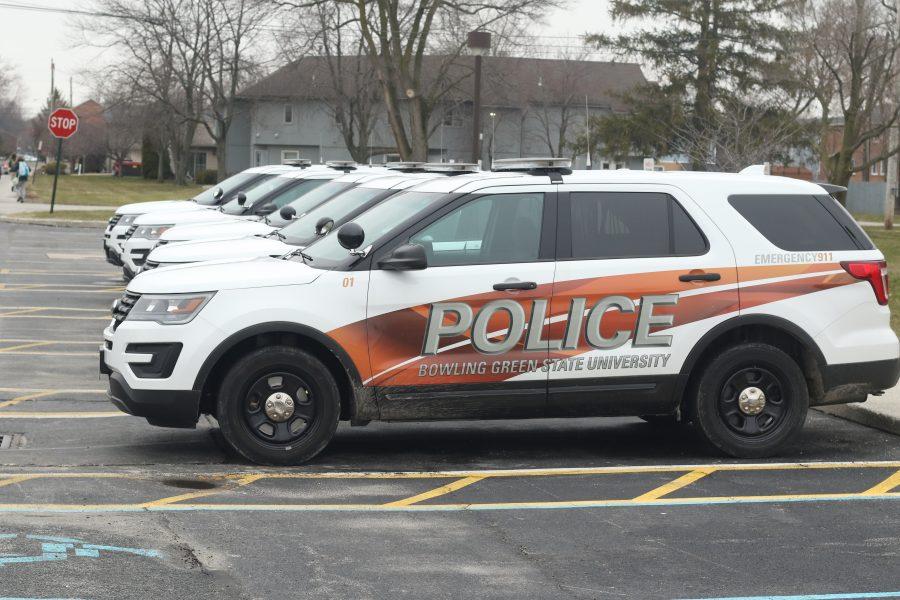Nearly 50 people gathered at the Wood County Public Library on Tuesday morning to hear the mayor and other city officials deliver the State of the City Address, covering the city’s financial, economic and developmental situations.
“It goes without stating that the challenges facing elected officials and others attempting to serve the public good these days are enormous,” said Mayor Richard Edwards.
One of the challenges the city faces is a shrinking general fund, which supports 50 percent of the total labor force, including police and firefighters, said John Fawcett, the city’s municipal administrator.
The general fund mainly pays salaries and purchases supplies and uniforms, Fawcett said. It is funded by income tax, property tax, state and local funding and investment interest.
However, investment interest has decreased by 83 percent, state and local funding has decreased by 43 percent and property tax is down by 10 percent.
The general fund has decreased by more than 10 percent since 2007 due to the shrinking funding, Fawcett said.
This year’s projected revenue is $14.1 million, which is equal to 2005’s revenue, he said. In 2013, the projected revenue is estimated to be less than $14 million.
“With the Great Recession setting in 2008, the staff had the forethought of curving expenses,” Fawcett said. “In a recession, the local government is the last to feel the impact and the last to experience recovery.”
In order to alleviate demand on the shrinking general fund, he said the city cut down on workers, stating that the staff is 29 workers fewer than a year ago.
According to Fawcett, this method is a double-edged sword.
“It reduces the cost, but impacts the quality of service,” he said, noting the police division has five vacanies that won’t be filled and the fire division has two.
However, the city is also seeking collaborative opportunities with state and county agencies to share services, equipment and personnel to deliver services to the public to help alleviate cost, Fawcett said.
The University will be one of the city’s collaborators.
The collaboration, called the Joint Visioning Task Force, aims to improve relations between the two through steps such as promoting a “buy local” atmosphere and extending educational partnerships and service learning opportunities, according to its Sept. 13 visioning report.
The city continues to see small improvements, but will take a critical look at the services provided to balance the budget, Fawcett said.
“There hasn’t been a discussion on what services will be curbed or eliminated, but nothing is off the table,” he said after the address. “We have to evaluate everything and look at what we can afford and what we can’t afford.”
While local government may be experiencing some challenges, local businesses are improving.
Sue Clark, executive director of the Bowling Green Community Foundation, said local business is growing.
Clark said the community foundation tracks investment and employment records. In 2011, nearly $60 million was invested in machinery equipment by area companies.
“This shows business is alive and continuing to grow,” she said. “Some companies had to turn away business because they didn’t have enough employees, because they wanted to maintain controlled growth.”
Growth, however, has been internal and no new companies have opened in the past 12 months, Clark said. A new company is scheduled to open sometime in the first quarter of 2013.
With growth, Clark said jobs are available, contrary to what political ads may say.
“There are jobs, not just minimum wage,” she said.
Companies are struggling to fill positions with concerns about whether there is the work force or skills, Clark said.
”We are an education community,” she said. “We need to address how to train and meet needs of employers.”






















